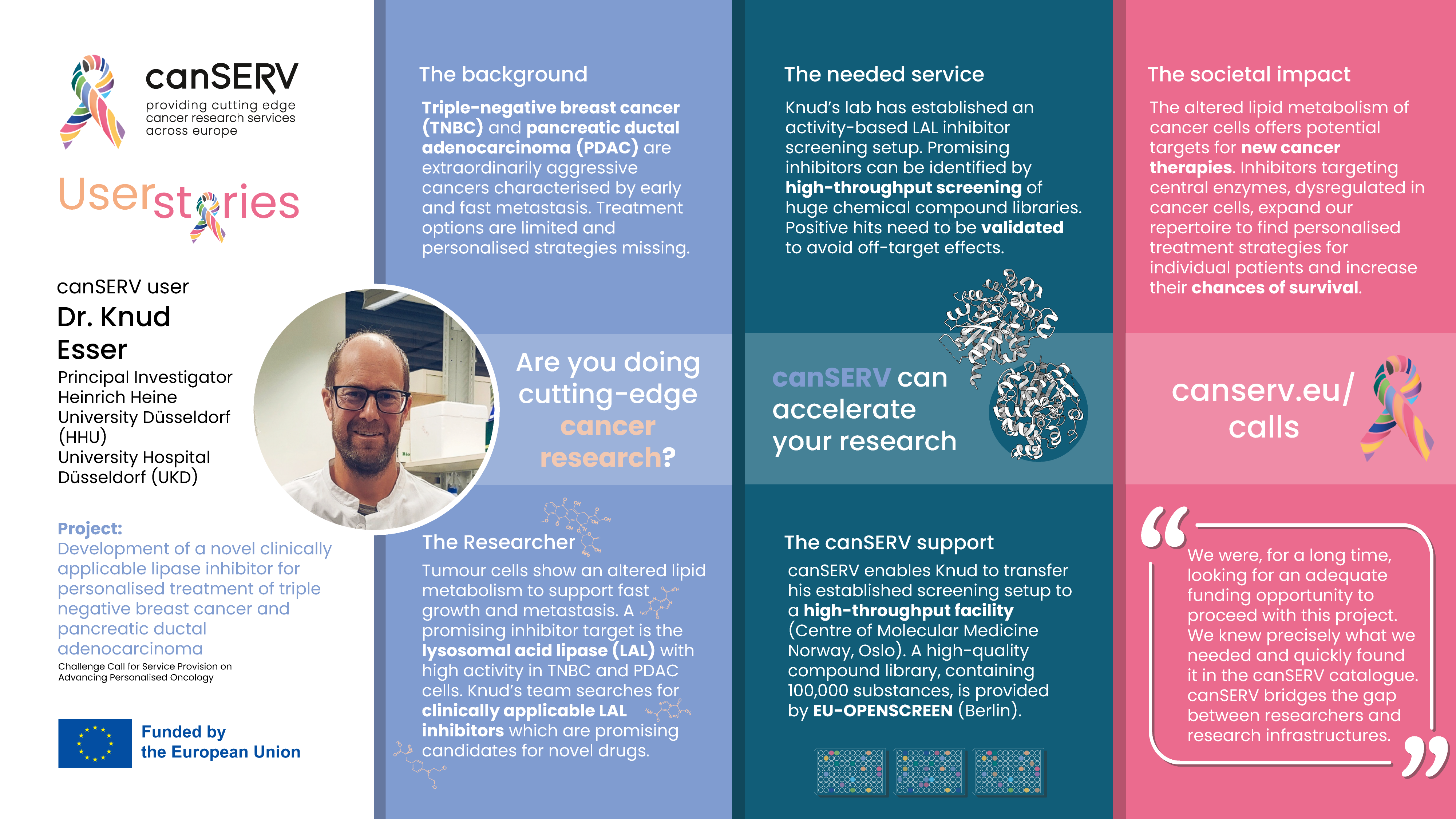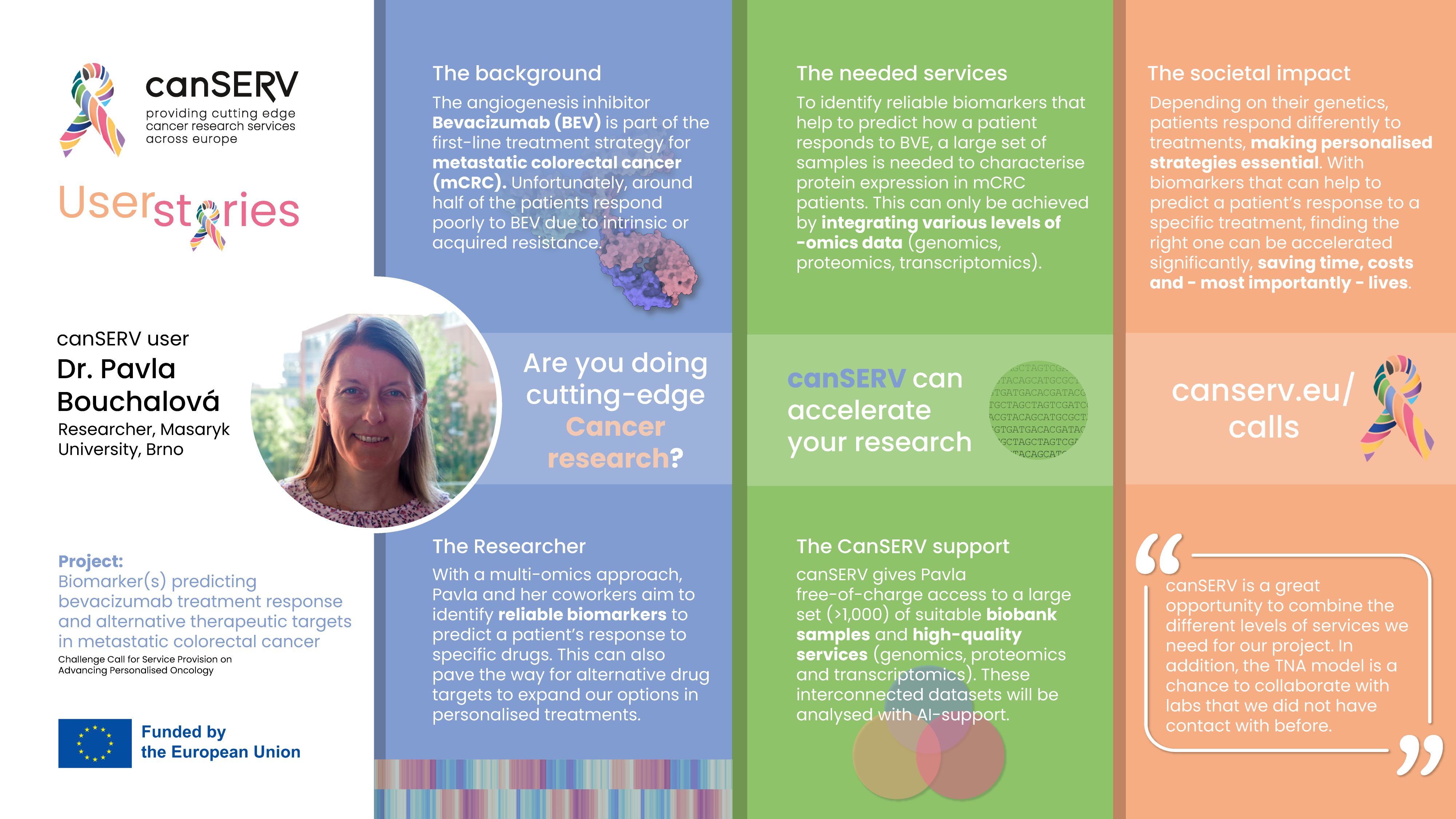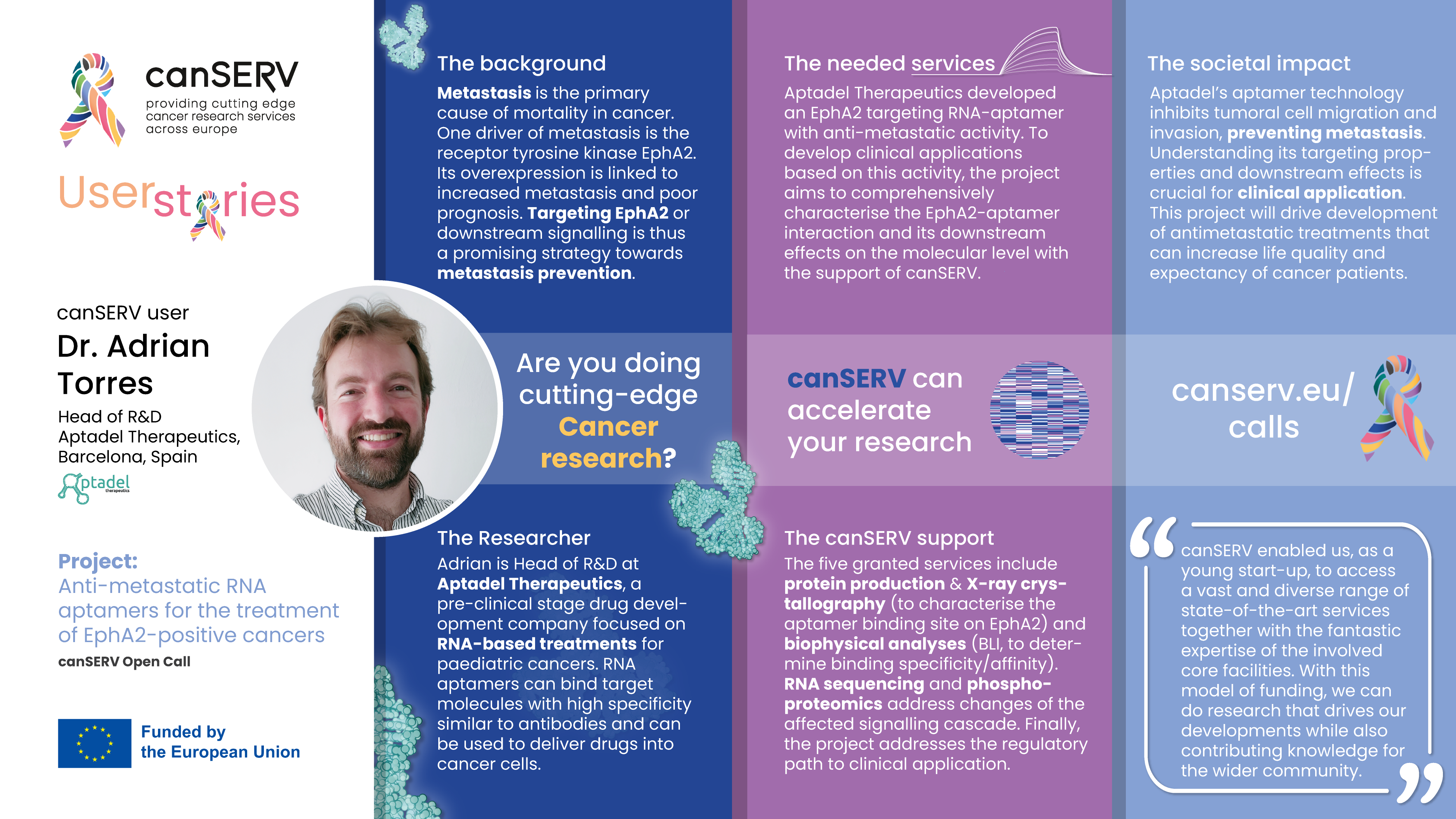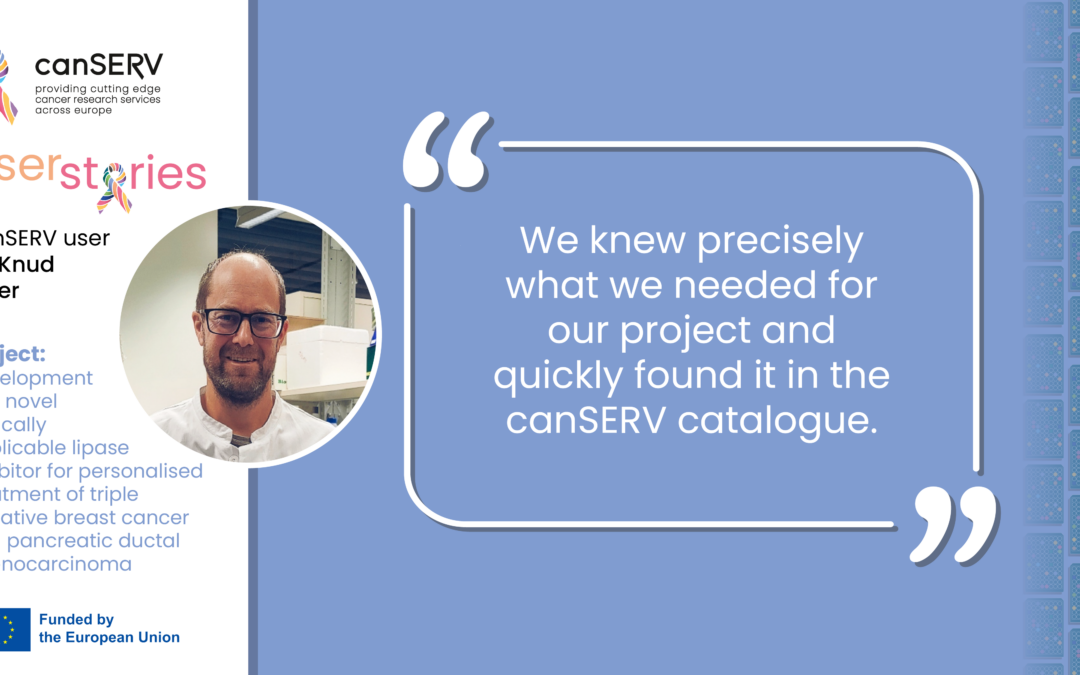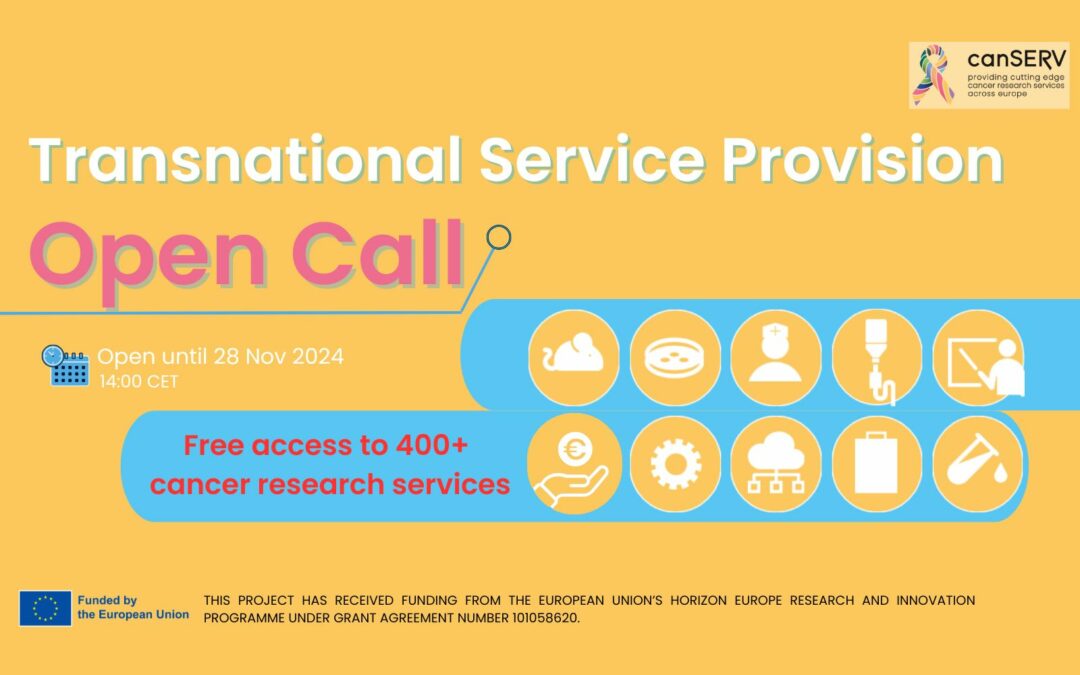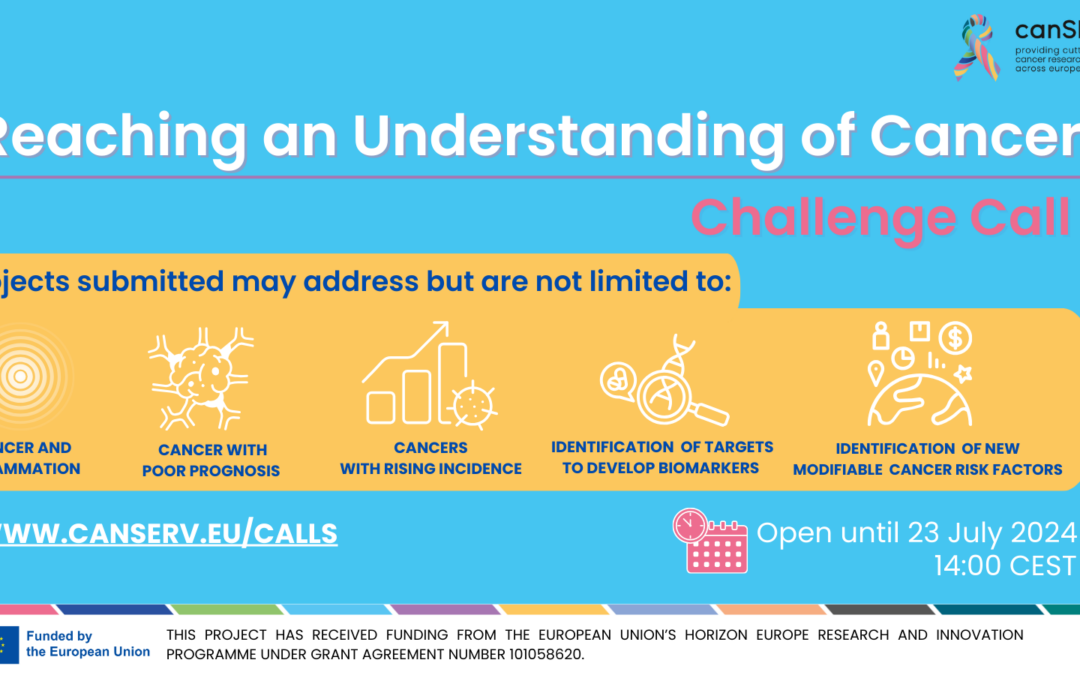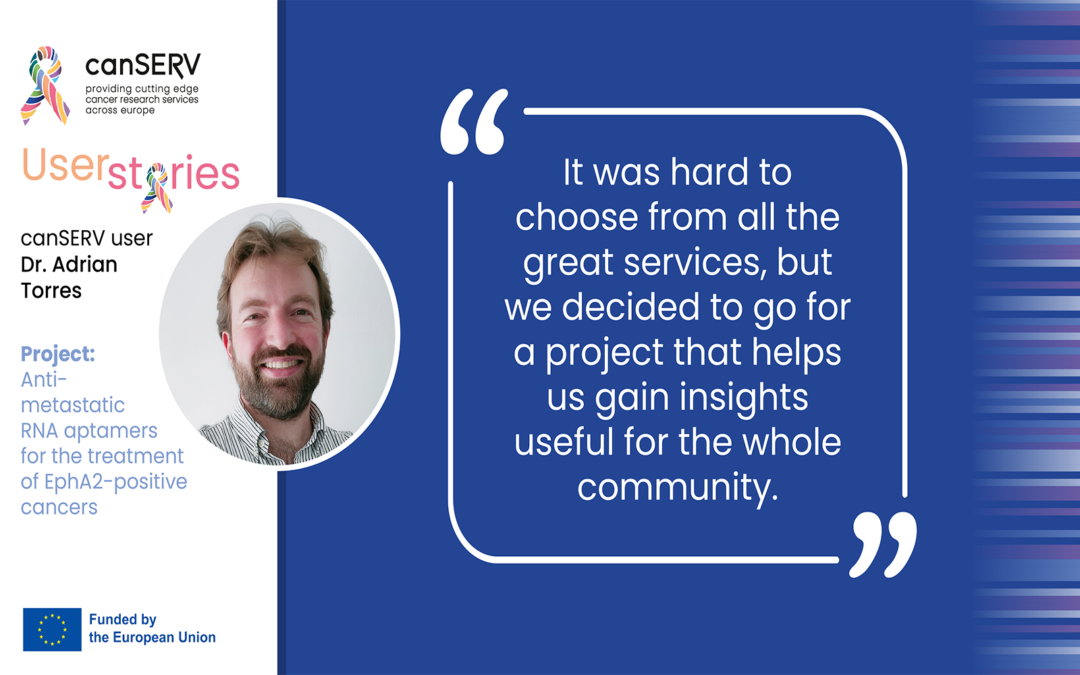
canSERV User Stories
canSERV User stories
Explore how canSERV is making a difference in the words of cancer researchers. These real-life success stories highlight the impact of our services in advancing cancer research and cancer innovation.
These user stories reflect the collaborative efforts between canSERV and its users, demonstrating how our cutting-edge resources and expertise are empowering researchers, clinicians, and innovators across Europe and beyond.
Principal Investigator Heinrich Heine University Düsseldorf (HHU) and University Hospital Düsseldorf (UKD) Project:
Call: Challenge Call for “Service Provision on Advancing Personalised Oncology”
Project: “Development of a novel clinically applicable lipase inhibitor for personalised treatment of triple negative breast cancer and pancreatic ductal adenocarcinoma”
canSERV support: canSERV enables Knud to transfer his established screening setup to a high-throughput facility (Centre of Molecular Medicine Norway, Oslo). A high-quality compound library, containing 100,000 substances, is provided by EU-OPENSCREEN (Berlin).
Dr Pavla Bouchalová
Researcher, Masaryk University, Brno
Call: Challenge Call for Service provision on” Advancing Personalised Oncology”
Project: “Biomarker(s) predicing bevacizumab treatment response and alternative therpeutic targets in metastatic colorectal cancer.”
canSERV support: canSERV gives Pavla free-of-charge access to a large set (>1,000) of suitable biobank samples and high-quality services (genomics, proteomics, and transcriptomics). These interconnected datasets will be analysed with AI-support.
Dr Adrian Torres
Head of R&D Aptadel Therapeutics, Barcelona, Spain
Call: Open Call for Service Provision
Project: “Anti-metastatic RNA aptamers for the treatment of EphA2-positive cancers”
canSERV support: The five granted services include protein production & X-ray crystallography (to characterise the aptamer binding site on EphA2) and biophysical analyses (BLI, to determine binding specificity/affinity). RNA sequencing and phospho-proteomics address changes of the affected signalling cascade. Finally, the project addresses the regulatory path to clinical application.
Dr Dace Pjanova
Tenured Professor Riga, Stradiņš University, Latvia
Call: Open Call for Service Provision
Project: “Whole exome sequencing to advance melanoma early detection”
canSERV support: “Through canSERV, Dace’s team will perform whole exome sequencing (Uni Łódź) of DNA samples from Melanoma patients recruited for the Latvian Genome database (LGDB). With a second canSERV partner (IFO, Rome), Dace’s team will be trained to search the datasets for unknown causal genes for Melanoma and related cancer types.”
